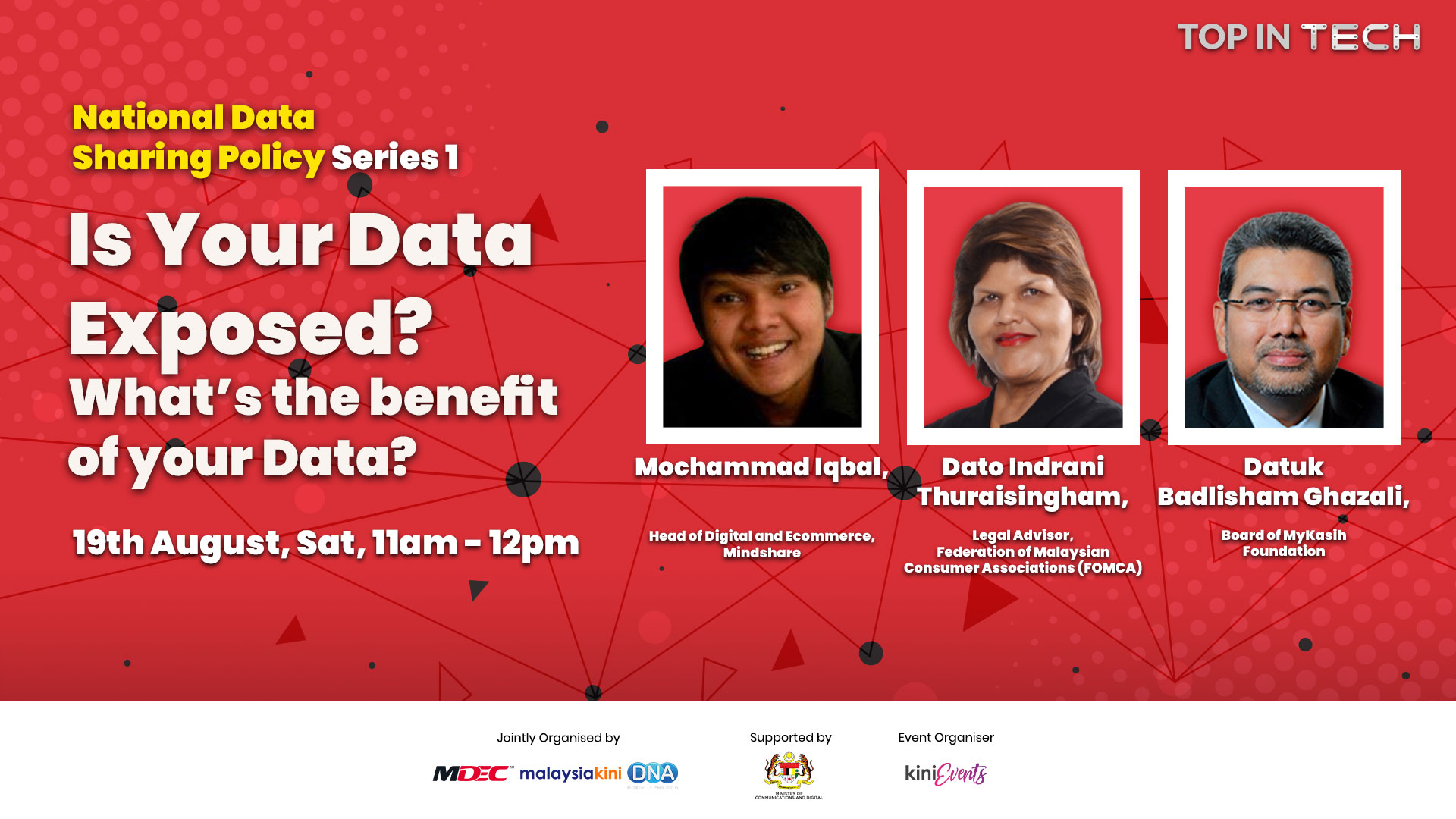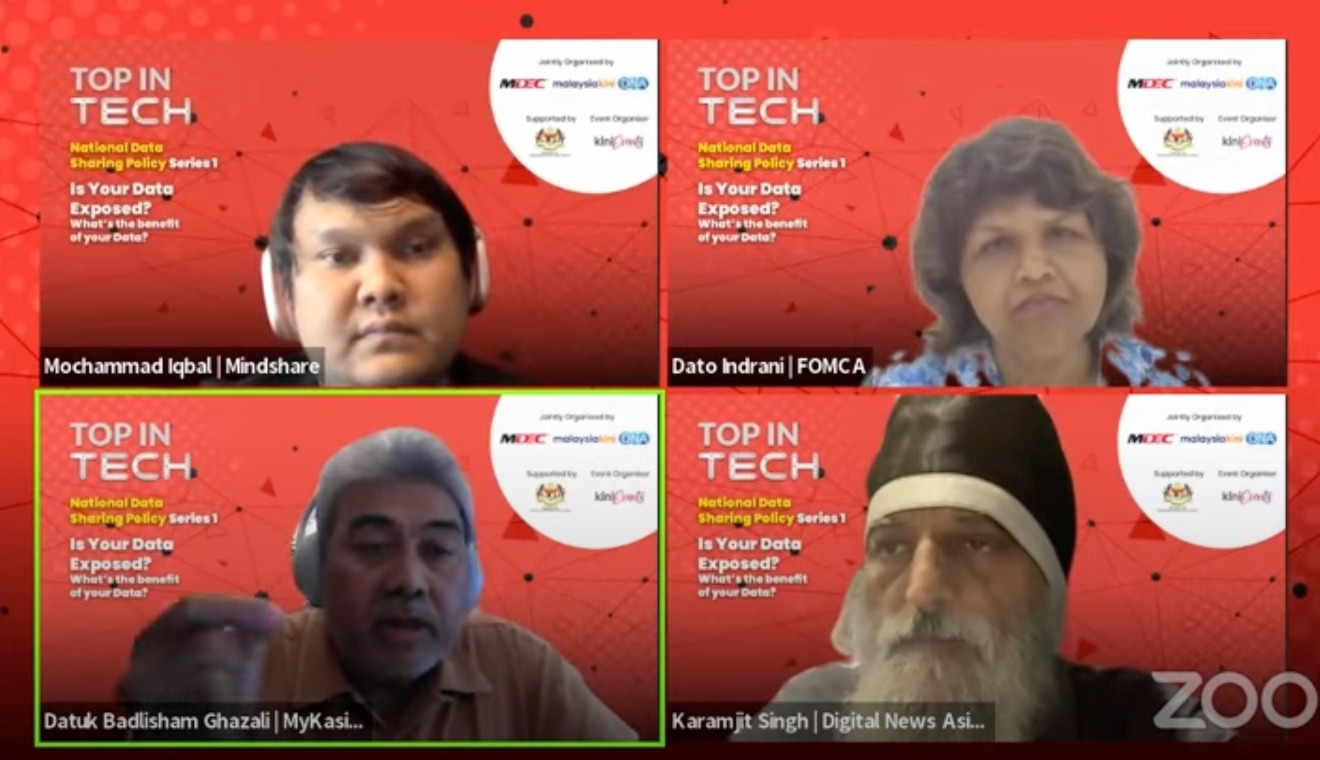
Many countries do have data-sharing policies or frameworks that outline how government agencies, organizations, and individuals should handle and share data, especially when it comes to sensitive or personal information. These policies often address issues related to data privacy, security, consent, and interoperability. They might define rules for data collection, storage, transmission, and sharing, and they could involve aspects such as open data initiatives, data protection regulations, and guidelines for data sharing among government entities.
In 2022, the Government launched the National Data Sharing Policy (NDSP), a visionary policy that transcends boundaries, encompassing the public sector, the private sector, and the Rakyat. This policy holds the key to fostering a data-sharing environment that is not only conducive but transformative.
To raise awareness and gather valuable feedback, we have initiated the NDSP Series – a collaborative effort by the Malaysia Digital Economy Corporation (MDEC), Malaysiakini, and Digital News Asia (DNA), with the support of the Ministry of Communications and Digital (KKD).
This series aims to educate the public about the benefits and challenges of data sharing while gathering opinions and suggestions to enhance the policy and its implementation. Your active participation in these discussions will be instrumental in shaping the data sharing practices in Malaysia, leading us towards a secure and dynamic digital world.
The first episode of the series “Is your Data Exposed - What’s the benefit of your data?” acquires a deeper understanding of the significance of personal data where Karamjit Singh from Digital News Asia speaks to Mochammad Iqbal, Head of Digital and E-commerce, at Mindshare, Dato Indrani Thuraisingham, Legal Advisor at the Federation of Malaysian Consumer Associations (FOMCA) and Datuk Badlisham Ghazali, a Board Member of the MyKasih Foundation.
Mochammad Iqbal emphasized the advantages of your personal data from a consumer perspective across various platforms, each offering distinct benefits. Within the realm of digital platforms, a social narrative unfolds, shaping your history. This narrative defines and empowers corporations with insights into their potential interests, resembling a bustling marketplace of services. However, these platforms are not solely advertising spaces; streaming services, such as those for movies, are also integral, and linked to your account. By accepting cookies, your information is stored, encompassing articles and videos. Moreover, these platforms filter and refine information, honing the content consumers are exposed to. As Iqbal aptly put it, "The intention will be to serve the most relevant content for the people."
Dato Indrani has firsthand experience with the enhanced convenience of streaming and online shopping. She highlighted that the accommodation experience, much like hotels, has also become personalized, tailoring services and products to meet consumer needs. For instance, movies are available across various channels, even a few weeks after release. Additionally, agencies and banks have integrated themselves into the system, though concerns over security arise, given instances of credit card data leaks through third-party sources.
Datuk Badlisham also addressed the topic of technological integration in his discussion on "Technology Reduction." He advocated for the utilization of MyKad, emphasizing its potential to streamline processes and target specific subsidies and government policies for the betterment of society. While the physical MyKad provides essential information, it is imperative to incorporate technological elements to ensure the accuracy of identifying the right recipients, thus preventing the exclusion of marginalized individuals. Through cross-referencing, it was found that merely 10% of those in need were effectively reached.

He summarized his viewpoint, stating, "I could say that two words that came to mind are efficiency, you’re more efficient is what you’re trying to do, but you are also being targeted which is necessary for the work that we do as an NGO of MyKasih."
e-Kasih refers to a Malaysian government initiative aimed at providing targeted social assistance to the country’s lower-income and vulnerable populations. The program utilizes an online platform to manage and distribute various forms of aid and support. It’s intended to streamline the process of identifying and reaching those in need, while also reducing administrative inefficiencies.
Digital Analytics Insights for Startups to Enhance Profitability
Mochammad Iqbal also addressed several questions from the audience, including one about how startups can achieve profitability. He responded by mentioning the significance of digital analytics tools such as Google and social media platforms, highlighting their adaptability for widespread use. These tools enable startups to tap into the potential insights hidden within consumer behavior patterns, encompassing aspects like the viewing, and purchasing processes, the frequency of browsing, and the specific pages visited. By comprehending these analytics, startups can gain a deeper understanding of their audience, leading to informed decisions about product introductions, and discounts, and identifying channels that might have been overlooked by consumers.
Individuals and Businesses with Data Protection Strategies in the Digital Realm
The next question posed to Mochammad Iqbal pertained to how individuals and businesses can safeguard their data. In response, he highlighted the increasing awareness and value associated with personal data, noting that around 41% of Malaysians are putting in more effort to protect their data. He mentioned that approximately 50% are taking measures such as deleting browser and cache data history, while 30% are making changes to their privacy settings. Iqbal emphasized, "If you think the relevancy of the personalized content that has been sent to you is not worth personal data sharing, you do have the power of restricting the digital Space."
For heightened awareness, he recommended that companies adopt specific software to protect shared personal data, minimizing the risk of leaks or hacks. He suggested the use of data hashing or scrambling during transfer, along with the implementation of robust database management policies, including strategies for data storage and secure movement.
Explores Personal Data Dynamics, Advocates for Trust, and Control in Data Sharing
In response, Karamjit pointed out that people have roles to play and need to be mindful about not sharing data mindlessly. Dato Indrani also underscored the benefits of data sharing among fellow consumers within an online community, enabling outreach to others for mutual benefits. She advocated for embracing data sharing while ensuring the implementation of privacy controls. Solutions included maintaining public profiles, utilizing platforms like LinkedIn, and registering for "DO NOT CALL REGISTRY" to combat unsolicited calls and scams, thereby building trust and giving consumers control their data.
Companies Strategies in Compensating Consumers for Data: Balancing Rewards, Transparency, and Choice
The final question directed at Iqbal delved into the reasons behind companies fulfilling their obligation of compensating paid consumers for their data. He explained that, in the Malaysian context, startups and platforms offer consumers the opportunity to earn rewards by uploading receipts, which are then exchanged for data credits. Additionally, companies entice users to share their data through sign-up benefits, samples, vouchers, discounts, and promotions. This approach also involves targeted advertising. As consumer concerns about transparency, usage, and protection have grown, the primary agenda is to foster more open communication with clients using the app. Hence, one option is to allow users to selectively choose the data they are comfortable sharing.
Finally, Datuk Badlisham Ghazali shed light on the potential downsides of data exposure, stressing that regardless of how high the protective walls might be, fear should not hinder us from understanding the educational benefits that data can offer. He emphasized the need for a shift in mindset, recognizing that the government possesses advantages that individuals might not have. He explained, "What they do is, they force our different agencies to really look at what kind of data we need to share for the benefit of the rakyat." To achieve this, he advocated for collaboration through regulations, policies, and parliamentary approval, all aimed at sharing data for the betterment of the people. This approach aims to broaden opportunities for the public and prevent them from being unfairly labeled as "Katak bawah tempurung," a metaphor meaning to be ignorant or outdated.
Learn additional details regarding the discourse covered in NDSP #1: "Is Your Data Exposed?" - HERE



